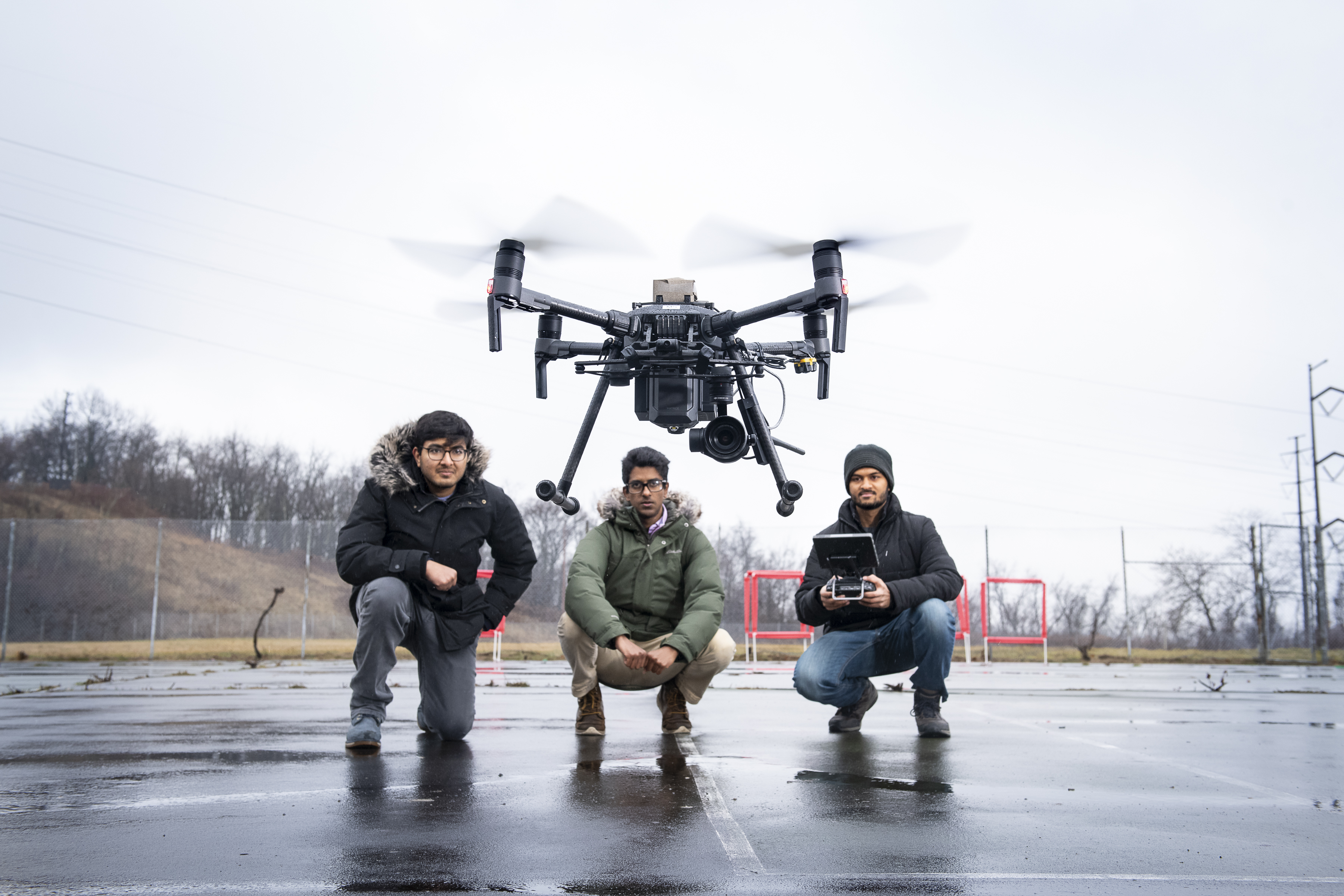Carnegie Mellon Will Compete in Abu Dhabi Robotics Challenge Robot Teams Tackle Tasks in Airport Security, Construction, Firefighting
Byron SpiceTuesday, February 18, 2020Print this page.

A group of Carnegie Mellon University students and faculty is among 30 teams from around the world that will compete at the biennial Mohamed Bin Zayed International Robotics Challenge (MBZIRC), one of the world’s largest and most prestigious robotics competitions. The event will take place Feb. 23–25.
The competition in the United Arab Emirates will literally be a trial by fire, said Oliver Kroemer, co-leader of CMU’s Tartan team, as the organizers have advised that one segment of the competition — a firefighting challenge — will include real flames.
"The competition includes a nice suite of forward-looking applications," said Kroemer, an assistant professor in CMU’s Robotics Institute. The firefighting challenge, for instance, will use drones and ground-based robots to detect and extinguish high-rise fires.
Other challenges include a construction scenario in which robot teams place large blocks in a row. In another, addressing the threat of drones flying too close to airports and military installations, teams will use their drones to track and intercept aerial targets.
The Tartan team includes a number of students enrolled in the Robotics Institute’s master’s program in systems development, as well as some undergraduates from the University of Pittsburgh. Kroemer and eight of the students will make the trip to the competition, which is organized and hosted by Khalifa University of Science and Technology in Abu Dhabi.
"Building on the success of the inaugural edition of MBZIRC 2017, the second edition will bring a total of 30 teams to the UAE to display their advanced innovations in some key robotics technologies," said Arif Sultan Al Hammadi, executive vice president of Khalifa University. "These finalists represent top internationally renowned academic and research institutions with well-established robotics labs, and we believe MBZIRC 2020 will showcase the creative best in robotics and stand testimony to its reputation as a leading global competition."
One of the attractions of the competition is that tackling the tasks in each challenge requires that teams build systems, a CMU strongpoint, Kroemer said.
"Plus, there’s just the fun factor," he added. "Students enjoy the competition."
Though the Tartans will field one ground robot, the competition relies heavily on drones. The robots will operate autonomously during the competition, with teams charged demerits if people need to intervene.
Individual competitions will occur for each of the three challenges — drone safety, construction and firefighting — as well as a grand challenge that is a triathlon encompassing all of the three individual challenges. Winners of each individual challenge will receive a prize of one million UAE dirhams, equivalent to about $270,000. The grand challenge winner receives two million dirhams.
Some of the world’s top academic robotics programs will be represented at the three-day competition, among them Georgia Tech, Virginia Tech, Korea Advanced Institute of Science and Technology, China’s Tsinghua University, and the University of Tokyo. Teams that were champions at MBZIRC 2017, including the University of Bonn, University of Pennsylvania and Beijing University of Technology, will compete once again. The Tartans were part of the inaugural contest, but competed in only one of the challenges.
The competition coincides with another high-profile robotics contest, the Defense Advanced Research Project Agency (DARPA) Subterranean Challenge, in which CMU also fields a team, Explorer. Sebastian Scherer, an associate research professor in the Robotics Institute, is co-leader of both CMU’s MBZIRC entry and the DARPA entry. The DARPA competition, which requires teams of robots to perform search-and-rescue scenarios underground, will take place Feb. 18–27 in Elma, Washington.
Byron Spice | 412-268-9068 | bspice@cs.cmu.edu<br>Virginia Alvino Young | 412-268-8356 | vay@cmu.edu
